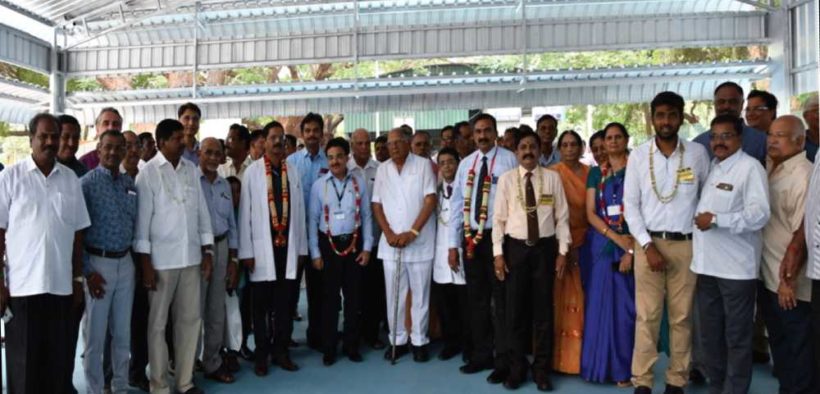JIPMER – Conquering new frontiers

Last year, the Jawaharlal Institute of Postgraduate Medical Education and Research (JIPMER) was ranked first amongst the government medical institutions in south India and fourth nationally by the National Institutional Ranking Framework (NIRF). The Ministry of Human Resource and Development adjudges the NIRF ranking. JIPMER has a history of over a century. The Ecole de Medicine de Pondicherry was established by the French government in 1823, which went on to transform into what we now know as JIPMER. The foundation for the new medical college was laid in 1956 and it was inaugurated in 1964.
With a 192.2-acre sprawling campus in Puducherry, JIPMER was set up with the aim to lead in medical teaching, research and patient care in the country. It was granted the status of Institution of National Importance (INI) in 2008 by the Centre’s ministry of health and family welfare. INI status is given to public higher education institutions in India by an act of Indian Parliament. These institutions “serve as a pivotal player in developing highly skilled personnel within the specified region of the country/state.” In 2002, the Department of Radiotherapy at JIPMER was made a Regional Cancer Centre. Two departments in RCC were established in 2014, radiotherapy and medical oncology. JIPMER is a member of the TEIN (Trans-Eurasia Information Network). It interacts and shares knowledge with Asian and European countries.
Its telemedicine services center has collaborated with Seoul National University Bundang Hospital, South Korea, using TEIN. In 2016, JIPMER personnel interacted with them for the first time over video conferencing and became India’s first center to employ telemedicine services for knowledge sharing. TEIN utilizes ICT technologies to improve regional cooperation with Asian countries and decrease the digital gap of underdeveloped countries. It also connects universities and research centers over high capacity internet network for boosting knowledge exchange and helps with large international research projects. JIPMER has actively been involved in medical research since it was established.
Also read about
Faculty research projects, postgraduate dissertation work, undergraduate research projects, and Ph.D. theses have all been part of the numerous research activities at the center. Research initiatives have greatly grown in number since the center was conferred the status of INI. In the last year, apart from achieving and bettering its targets in medical education and patient care, JIPMER has focused its efforts on improving research, both basic and clinical, says Dr. S Vivekanandham, ex-Director, JIPMER. “To this end, the number of grants has increased, while students and faculty develop their innovative ideas into concrete patents and copyrights.” In 2017-18, six patents were filed from JIPMER; five by the center’s faculty and one by an MBBS student. The center has also started the Research Leadership Mentoring Programme to help generate national and international medical research pioneers in the future.
The institute’s official publication, International Journal of Advanced Medical and Health Research, is a free-access online journal that is peer-reviewed and published twice a year. Last year, the researchers from JIPMER published more than 450 articles in medical journals. This signifies the whopping amount of research work undertaken at the center. In the past three years, the number of research projects has more than doubled. In the future, JIPMER plans to establish a Centre of Applied Basic Medical Sciences to strengthen its position in research in the country. New courses such as molecular biology, signal transduction, intracellular pathways, nanotechnology, instrumentation technology, neural network, probiotics, and prebiotics, will be introduced to promote newer molecular research. A translational research center is also on the cards to reduce the gap between discoveries and clinical implementations.
Fact File
RCC-JIPMER
Location: Puducherry
Founded in: 1823
DIRECTOR: Dr. Rakesh Agarwal
















